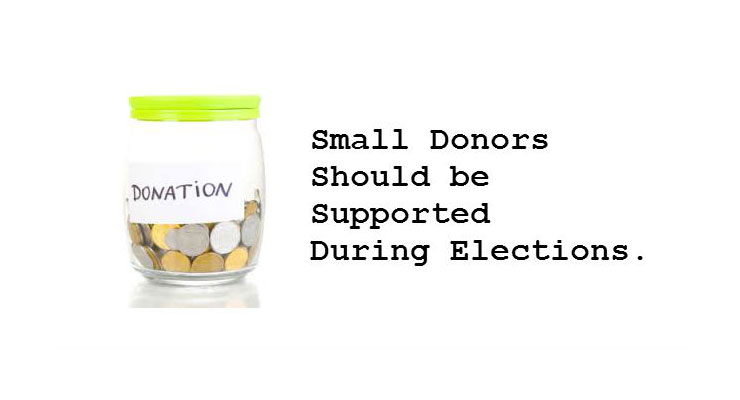
Money politics has long dominated American politics, but the scale of the problem has gotten much worse since the Supreme Court made its infamous 2010 ruling known as: Citizens United. This is despite the fact that evidence is growing that small donors can fund political campaigns if they get some support such as through a voluntary public matching funds program. New York City’s system of matching funds for small donors has gotten particular attention. Now good news is coming on this front according to new analysis covered in an article in the Gotham Gazette by Samar Khurshid:
Small-dollar donors were behind 63 percent of the first wave of campaign contributions to candidates who ran in the February special election for public advocate, up from 26.3 percent in 2013 when there was an open race for the seat, according to an analysis by New York City Council Member Ben Kallos. The Manhattan Council member sponsored the law to implement in the public advocate special election the new campaign finance rules overwhelmingly approved by voters in a ballot referendum last year.
The public advocate special election, in which City Council Member Jumaane Williams emerged victorious, was the first citywide race under the new rules that lowered contribution limits for special elections for citywide offices from $2,550 to $1,000 (special election limits are half of the regular election limits, which changed from $5,100 to $2,000), increased the ratio of public matching funds given to candidates from 6-to-1 for the first $175 of a qualifying contribution to 8-to-1 for the first $250, and increased the limit for public funds payments from 55 percent of the spending limit for a race to 75 percent.
The Gotham Gazette has the full story. Also visit Democracy Chronicles main sections on Money Politics and American Democracy.
Leave a Reply